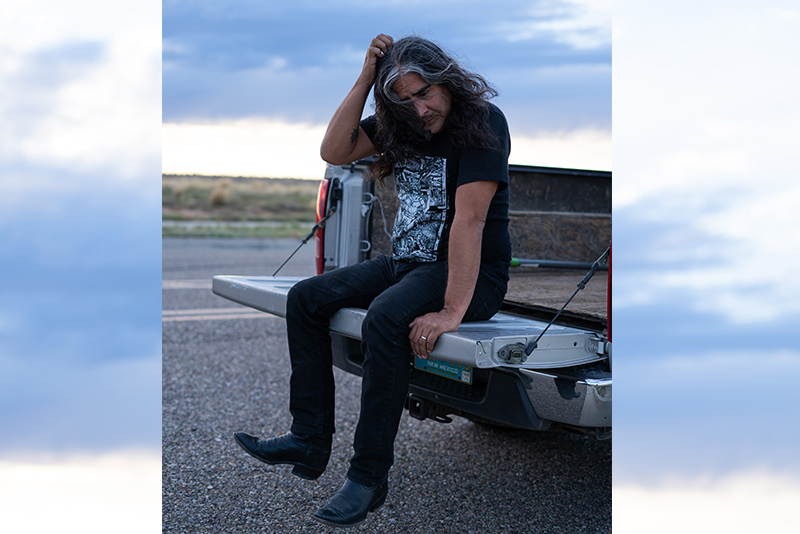
WHEN IS MUSIC NOT MUSIC?
OAKLAND, CA—-My professor taught a music course for non-majors and posed this very question, playing 3 or 4 recordings from concerts, each one fuzzier and less score-specific than the previous. I finally said no way to the last one, and now realize, years later, I was wrong, wrong, wrong.
The 2022 winner of the Pulitzer Prize in Music, Raven Chacon, was inside the historic Mills College Concert Hall last week playing his own work entailing in part what he calls “noise music,” using an electric guitar. His music formerly would have been excluded because of a Pulitzer requirement that the music be written down and thus potentially replicated by others.
There were no clear notes, nor bars nor rhythms nor chords nor tunes in the music, just sound—-“noise.” Not even a visible score. This all-Chacon concert was the music of today, gaining great respectability, even better for watching than listening.
Outside next to another campus building, a tireless young man with lacrosse stick was bouncing the ball off a wall in irregular patterns, with resonance. Was that too music?
I’m not sure. But for Chacon, 45, and his audience, this was a historic time. Last year marked the first time in history that a Navajo Indian of the Indigenous People had ever won the much-sought-after Pulitzer in Music, which every composer-professor alive vies after. Among others.
Chacon’s “Round” had six performers around a table activating electronics and a central turntable. There were roars, whooshes, and staticky sounds like shortwave radio still seeking a station. These seemingly semi-improvised sonic explorations reminded one of early electronic concerts in this very hall 50 or more years ago, going from loud to ultra-loud. Happily, free earplugs were there on a stand for the taking.
Later, a solo for cello, “Quiver,” with growls, whirlwinds, bow scrapes and spiccato tones. In many ways, Ben Davis’ cello imitated electronic music over 15 minutes.
By far the most interesting was the piece with the giant pine cone sliding and rubbing over an electrified kettle drum—just one of some 20 devices employed by percussionist William Winant. This was the soundscape “Duo Improvisation,” where seeing the players became as engrossing as listening. Chacon was on his multi-sound electric guitar, manipulating pedal controls as much as strumming.
Meantime percussionist/showman William Winant, a mountain of a man, dove into a variety of instruments, working the drums of a stage set and churning about his musical arsenal, ranging from shimmers of scrapes over his giant tam-tam to the high-pitched squeaks of a cymbal drawn across an electrified kettle.
The pine cone journeyed across the drumskin and reached the far side, all the sounds enharmonic. This must-see duo ended in 20 minutes.
The casual informality of the event offered a lot of fiddling—fiddling with the equipment and controls, that is.
The conviviality at the break was welcome. This being Mills college, musicians and patrons milled about. When Chacon, 45, came over with all his luxurious salt-and-pepper hair over the shoulders, people took photos of the celebrity, who is currently composer in residence at Mills and a star in an exotic musical medium.
Exiting, I hoped that the lacrosse player was still doing his unmetered shots fired in amiable irregularity in his competing “concert.” But no, darkness had swept over the campus, and the sycamores untouched by the recent stormy blow stood inordinately quiet—out of respect? Perhaps because a relative, a pine tree, had provided a vital instrument for an epic concert experience.
The Mills Center for Contemporary Music (CCM) presenters have a distinguished history of bold sonic innovation. A half century ago, this same hall hosted internationally known experimental composers like Pauline Oliveros, Lou Harrison, Karlheinz Stockhausen, John Cage, and Robert Ashley via the CCM.
COMPOSER-IN-RESIDENCE RAVEN CHACON in his works March 18, Concert Hall, Mills College at Northeastern University, Oakland, CA. For CCM info: performingarts.mills.edu/center-for-comtemporary-music/index.php.